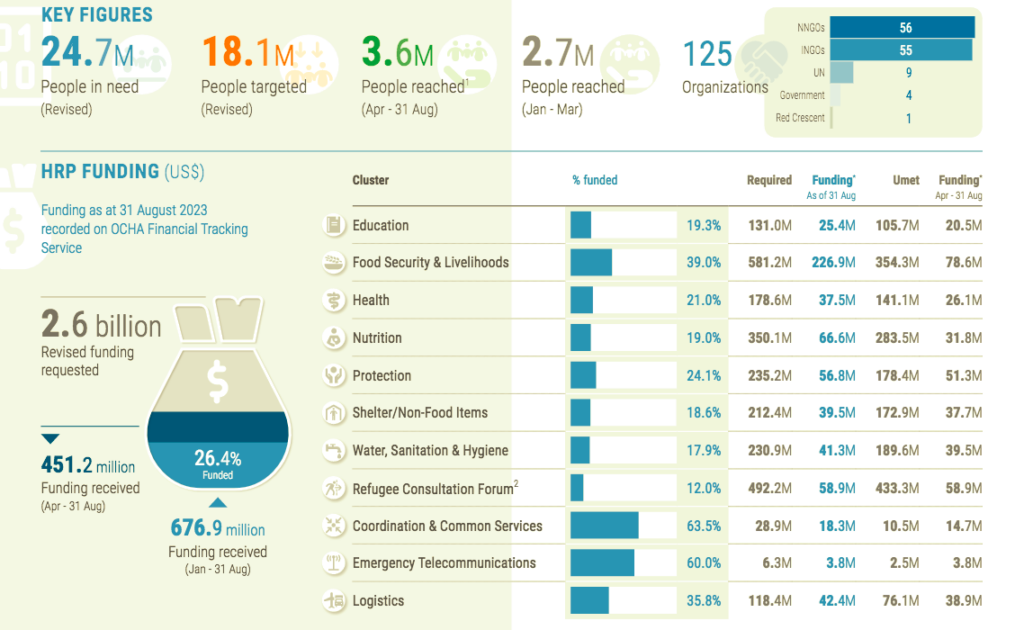OCHA: Over $2 billion needed to protect Sudanese from war

As of August 31, key figures and funding allocations in Sudan according to OCHA (Source: OCHA)
According to the UN Office for the Coordination of Humanitarian Affairs (OCHA), humanitarian organisations require USD 2.6 billion to assist and protect people in Sudan until the end of the year. 26.4 per cent has been received as of August 31.
Among the key sectors that need money for vital resources such as education, food security, health, protection, shelter, and hygiene, there is a desperate lack of logistics and emergency telecommunications services, OCHA reported on October 8.
Last year, USD 115 million reached Sudan through the Sudan Humanitarian Fund (SHF) and the Central Emergency Response Fund (CERF).
“Fighting in Sudan has resulted in devastating consequences for civilians,” the report noted. Over 4.2 million people have been internally displaced and many others have been cut off from access to basic services. “Prices of food commodities, when available, continue to soar.”
Reports of increased sexual and gender-based violence, family separation, and child recruitment continue to be a “key concern,” said OCHA. “Access to health continues to be hampered by the ongoing conflict. Health facilities lack sufficient staff and supplies, and are barely functional in some areas.”
3.6 million people have been reached with life-saving assistance between April and August, the report said.
“The power grid and mobile networks have been compromised since the outbreak of fighting in Sudan in mid-April, making communication a major challenge for humanitarian operations.” OCHA also reported extensive looting of communications assets across the country.
According to the Integrated Food Security Phrase Classification (IPC) the number of acutely food insecure people in Sudan is set to reduce by an estimated 5.3 million from October onwards, and by about 15 million up to February 2024.
In its latest situation update on Saturday, OCHA reported that Sudan’s displaced people have sought refuge in 4,403 different locations across Sudan’s 18 states. 1.1 million have crossed to Sudan’s neighbouring countries.











 and then
and then